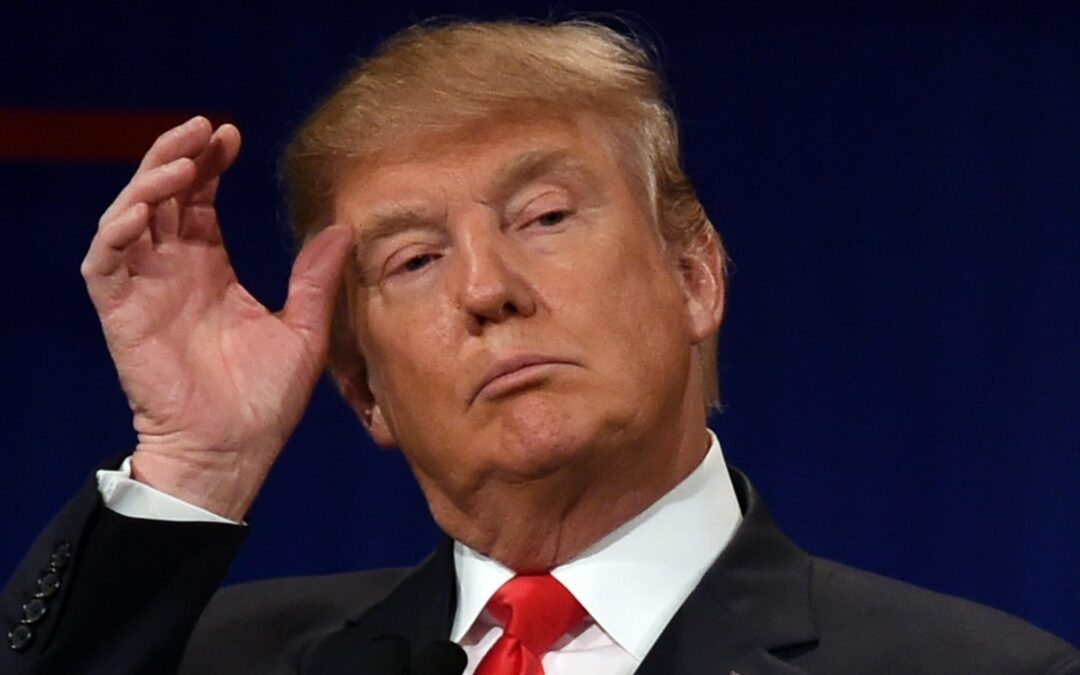Linking the current congressional investigations gripping Washington to the Watergate scandal, the D.C. Circuit affirmed today that House lawmakers can subpoena eight years of Donald Trump’s personal financial records.
The 2-1 decision marks a major defeat for Trump, saying Congress holds the authority to issue investigative subpoenas — regardless if the subject of the investigation occupies the White House.
“The fact that the subpoena in this case seeks information that concerns the President of the United States adds a twist, but not a surprising one: disputes between Congress and the president are a recurring plot in our national story. And that is precisely what the Framers intended,” U.S. Circuit Judge David Tatel wrote for the majority.
Tatel notes that there was no question in the 1970s about the power of the Senate to investigate the break-in at the Democratic National Committee headquarters.
Similarly, he said, the House Committee on Oversight and Reform is within its constitutional mandate to subpoena Trump’s personal accountants at Mazars USA LLC.
House Oversight Committee Chair Elijah Cummings called the decision by the court a “resounding victory” for Congress.
The ruling will allow the committee to dig into records that could show attempts by the president to falsify financial statements for what Cummings added may be “potentially improper purposes.”
“We must fulfill our stated legislative and oversight objectives and permit the American people to obtain answers about some of the deeply troubling questions regarding the President’s adherence to Constitutional and statutory requirements to avoid conflicts of interest,” Cummings said in a statement.
Allowing the House Oversight Committee to move forward with the investigation, the 66-page ruling quotes an opinion by Supreme Court Justice Louis Brandeis that the founders adopted the doctrine of the separation of powers “not to avoid friction” but “to save the people from autocracy.”
U.S. Circuit Judge Neomi Rao, a Trump appointee, strongly condemned the decision in a 68-page dissent, saying Congress would have to invoke impeachment power, rather than legislative power as it did here.
Democrats have argued the subpoena is key to unlocking a window into Trump’s multifold assets, informing lawmakers in the House as they pass various new bills on ethics and financial disclosure.
The majority agreed the records are relevant to the committee’s investigation.
“Just as a congressional committee could not subpoena the President’s high school transcripts in service of an investigation into K-12 education, nor subpoena his medical records as part of an investigation into public health, it may not subpoena his financial information except to facilitate an investigation into presidential finances,” the opinion states.
But Rao said the legislative investigation of Trump undercuts the Constitution, historical practice and circuit precedent.
“Allowing Congress to use the legislative power to circumvent the impeachment process disrupts the separation of powers,” she wrote.
But the majority ruling backs up presidential financial disclosures, anchored in decades of precedent that Trump has combated in court.
“In sum, we detect no inherent constitutional flaw in laws requiring presidents to publicly disclose certain financial information,” Tatel wrote. “And that is enough.”
A Supreme Court battle over the Mazars subpoena may still lie ahead, further delaying the production of Trump’s records to the House.
The decision today comes as Democrats wage a field of legal battles in D.C. federal court for access to the president’s veiled financial statements.
Elizabeth Wydra and Brianne Gorod, president and chief counsel, respectively, of the Constitutional Accountability Center, said in a statement today they were heartened the D.C. Circuit moved quickly in issuing a ruling.
The D.C. think tank had filed an amicus brief supporting the House in the case, and Wydra and Gorod said they hopes the Supreme Court will follow the lower court’s example if Trump appeals.
“The D.C. Circuit today rightly recognized that the House’s subpoena for the President’s financial records falls well within Congress’s oversight authority, and that congressional oversight is today — and has long been — a tool that is essential to the ability of Congress as an institution to do its job,” Wydra and Gorod said, adding the ruling was a victory for the country that reinforces the system of checks-and-balances.
